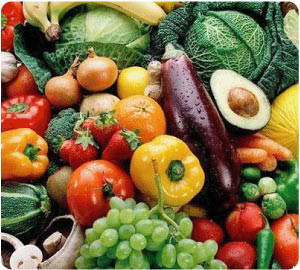Food contains natural chemicals, including carbohydrates, sugars, proteins and vitamins. But some foods contain potentially harmful natural toxins. Sometimes a toxin is present as a naturally occurring pesticide to ward off insect attack or to protect the plant from spoilage when damaged by weather, handling, UV light or microbes.
Food is packed with natural chemicals that are essential to our health, such as vitamins and minerals. But some foods contain potentially harmful substances called natural toxins. Most natural toxins occur naturally in just a few foods. Other natural toxins are produced when the food is damaged, or when moulds or other fungi grow on the food. These are some of the foods that can contain natural toxins.
Red kidney beans: Dried red kidney beans contain natural toxins called lectins, which can cause stomach aches and vomiting. These are destroyed if you soak the dried beans for at least 12 hours and then boil them vigorously for at least 10 minutes in fresh water. Tinned kidney beans have already had this process applied and so can be used without further treatment.
Green potatoes: All potatoes contain natural toxins called glycoalkaloids, usually at low levels, higher levels of glycoalkaloids can be found in green parts of potatoes, sprouted potatoes and potatoes stored in light.
Apples: Mouldy or damaged apples may contain a toxin called patulin, particularly around the bruised or damaged part of the fruit.
Shellfish: Toxins formed by algae in the sea and fresh water are called algal toxins. Shellfish such as mussels, scallops and oysters are more likely to contain these toxins than other fish.
Liver and Vitamin A: Vitamin A is essential in everyone’s diet but if one is pregnant and you consume excessive amounts the developing foetus may be harmed. The Government’s Chief Medical Officer has advised women who are trying to conceive to avoid taking Vitamin A supplements. As a precautionary measure, these women are also advised to avoid food rich in vitamin A, such as liver and liver products.
Mouldy foods: Moulds are usually visible, but toxins produced by moulds and other fungi – mycotoxins are invisible and can penetrate food.
Avoiding natural toxins:
Usually natural toxins will only be harmful if consumed them in large quantities over a long period of time. But can help to reduce the amount eaten by doing the following things.
- Eat a wide variety of foods.
- Throw away foods after the ‘Use by’ date.
- Store food properly.
- Don’t assume that if something is ‘natural’ it automatically means it’s safe.
- Prepare and cook foods properly.
- Throw away bruised, damaged or discoloured foods.
- Throw away any foods that don’t smell or taste fresh, or have an unusually bitter taste.

